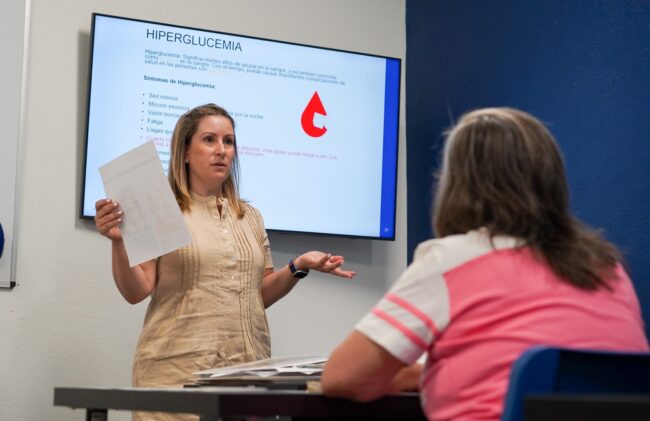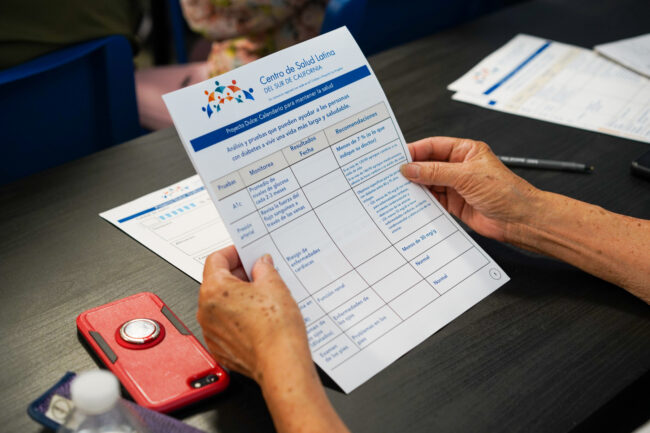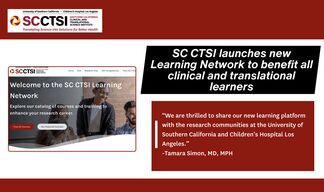SC CTSI Partners with SCCLH to Launch Project Dulce, a Comprehensive Diabetes Management Program
SC CTSI launched Project Dulce, a project developed by Scripps Health, to provide culturally tailored diabetes education and resources to the Pacoima community, focusing on management and prevention.
The Community Engagement Core at the Southern California Clinical and Translational Science Institute (SC CTSI), in collaboration with the Southern California Center for Latino Health (SCCLH), launched Project Dulce on July 12, an evidence-based diabetes management program developed by the Scripps Whittier Institute. The series of four sessions, held every Friday in July, was introduced at Plaza Comunitaria Sinaloa, in Pacoima, California.

This launch follows the participation of members from SC CTSI and SCCLH, along with community health workers, in the three-day Project Dulce training program conducted by the Scripps Whittier Diabetes Institute in February 2024. The training was designed to equip community health workers with the skills needed to effectively deliver evidence-based research on diabetes to their communities.
“The main objective Scripps emphasized in the training was the importance of adapting the material to the needs of the communities we serve,” said Adriana Argaiz, MSSP, Associate Director of Community Engagement at SCCLH. “With our longstanding partnership with Plaza Comunitaria Sinaloa, we are very familiar with the community and have tailored the material for them by ensuring everything was presented in plain language and aligned with their needs.”
Delivered entirely in Spanish, the program covered topics such as pre-diabetes, types of diabetes, nutrition, exercise, and diabetes management and prevention. With an emphasis on cultural relevance, it also addressed the negative health impacts of commonly consumed sugary drinks, snacks, and traditional dishes in the Latino community, while offering practical suggestions for healthier alternatives. Participants were highly engaged, actively participating in discussions and sharing their personal experiences.
The intended outcome of Project Dulce is to improve the lives of people with diabetes through culturally appropriate, community-based management, education, and support. Recognized by the American Diabetes Association and Medicare, Project Dulce is one of the few evidence-based programs focused on medically underserved populations with diabetes.

Jacqueline Paniagua, Chief Operating Officer at Plaza Comunitaria Sinaloa, expressed her enthusiasm about being the first organization selected to implement Project Dulce.
“I think that it’s a huge benefit bringing these resources to our community. There is a gap we are trying to fill, and that is where SC CTSI and SCCLH come in—to meet that need in health education,” Paniagua said.
As part of this ongoing effort, participants were asked to complete post-program evaluations. These evaluations will measure the program’s effectiveness and guide future enhancements.
SCCLH and SC CTSI plan to expand Project Dulce to more organizations across Southern California. By strengthening current partnerships and building new ones, they aim to refine the program and make diabetes education more accessible and empower individuals to lead healthier lives.



